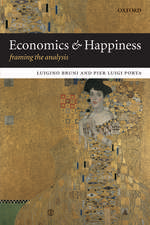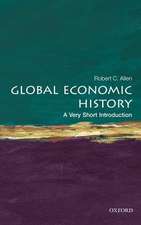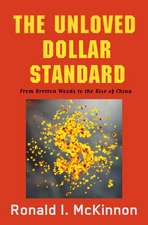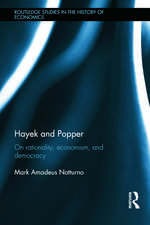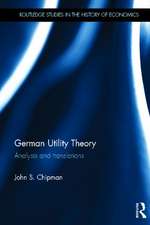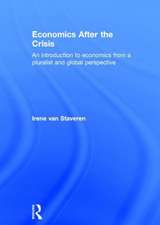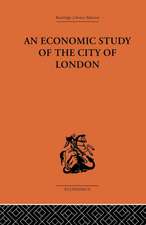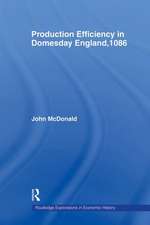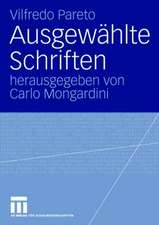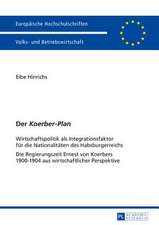Manual of Political Economy: A Critical and Variorum Edition
Autor Vilfredo Pareto Editat de Aldo Montesano, Alberto Zanni, Luigino Bruni, John S. Chipman, Michael McLureen Limba Engleză Hardback – mai 2014
| Toate formatele și edițiile | Preț | Express |
|---|---|---|
| Paperback (1) | 360.49 lei 3-5 săpt. | |
| OUP OXFORD – 24 sep 2020 | 360.49 lei 3-5 săpt. | |
| Hardback (1) | 1125.30 lei 10-16 zile | |
| Oxford University Press – mai 2014 | 1125.30 lei 10-16 zile |
Preț: 1125.30 lei
Preț vechi: 1585.92 lei
-29% Nou
Puncte Express: 1688
Preț estimativ în valută:
215.36€ • 224.00$ • 177.79£
215.36€ • 224.00$ • 177.79£
Carte disponibilă
Livrare economică 13-19 martie
Preluare comenzi: 021 569.72.76
Specificații
ISBN-13: 9780199607952
ISBN-10: 0199607958
Pagini: 720
Ilustrații: Figures
Dimensiuni: 171 x 253 x 45 mm
Greutate: 1.38 kg
Editura: Oxford University Press
Colecția OUP Oxford
Locul publicării:Oxford, United Kingdom
ISBN-10: 0199607958
Pagini: 720
Ilustrații: Figures
Dimensiuni: 171 x 253 x 45 mm
Greutate: 1.38 kg
Editura: Oxford University Press
Colecția OUP Oxford
Locul publicării:Oxford, United Kingdom
Recenzii
Notwithstanding our firm conviction that to really get to know an author, one needs to read him or her in the original, we nevertheless consider that this new English-language translation of Vilfredo Pareto's Manuale-Manuel (the earlier, highly criticized one, dating back to 1971) represents an important contribution to Anglo-Saxon Pareto studies. The translation, overseen by John Chipman with the assistance of Michael McLure, is completed by a valuable translation of the commentaries by Aldo Montesano, Alberto Zanni, and Luigino Bruni contained in the Italian edition published in 2006.
The editors of this variorum edition of the Manual are famed scholars in Pareto's work and have put together an amazing volume, which from now on deservedly becomes the main reference in future studies on Pareto's contribution to general equilibrium theory The international scientific community of economists is therefore greatly indebted to all five editors for their exceptional effort in translating, explaining, commenting and providing historical and rational context to this much talked about but scarcely read book. Lastly, this long overdue variorum edition of the Manual will definitely allow a much better understanding of both Pareto's analytical contribution and his role in the development of the economic science.
The reading of this critical edition of the Manual of Political Economy will at last enable English-speaking readers to fully appreciate a work which is more frequently cited than well known. The above-mentioned references do justice neither to the originality of Pareto's work, nor to the editors' comments, which cover all the main topics dealt with by the author; we only hope they will encourage readers' interest in this fundamental work of modern economic theory.
Today's economists would probably quickly realize that there is more, much more to Pareto than a theory of rational choice leading through a few equations to an ordinalist optimum. In particular, and among many of their most cherished arguments, they would realize that even if all markets were perfectly competitive and there was no problem of incomplete markets, Pareto would draw their attention to the fact that there is still no realistic conception of any price formation process which will produce those prices that promise all the social benefits encapsulated in the general equilibrium model... And for allowing the profession to access this important text in an optimal way, the editors of this splendid volume should be warmly commended.
The editors of this variorum edition of the Manual are famed scholars in Pareto's work and have put together an amazing volume, which from now on deservedly becomes the main reference in future studies on Pareto's contribution to general equilibrium theory The international scientific community of economists is therefore greatly indebted to all five editors for their exceptional effort in translating, explaining, commenting and providing historical and rational context to this much talked about but scarcely read book. Lastly, this long overdue variorum edition of the Manual will definitely allow a much better understanding of both Pareto's analytical contribution and his role in the development of the economic science.
The reading of this critical edition of the Manual of Political Economy will at last enable English-speaking readers to fully appreciate a work which is more frequently cited than well known. The above-mentioned references do justice neither to the originality of Pareto's work, nor to the editors' comments, which cover all the main topics dealt with by the author; we only hope they will encourage readers' interest in this fundamental work of modern economic theory.
Today's economists would probably quickly realize that there is more, much more to Pareto than a theory of rational choice leading through a few equations to an ordinalist optimum. In particular, and among many of their most cherished arguments, they would realize that even if all markets were perfectly competitive and there was no problem of incomplete markets, Pareto would draw their attention to the fact that there is still no realistic conception of any price formation process which will produce those prices that promise all the social benefits encapsulated in the general equilibrium model... And for allowing the profession to access this important text in an optimal way, the editors of this splendid volume should be warmly commended.
Notă biografică
Aldo Montesano is Professor Emeritus of Economics at the Bocconi University of Milan, Italy. From 1983 to 2008 he was editor of the International Review of Economics (formerly RISEC, Rivista Internazionale di Scienze Economiche e Commerciali). He is fellow of the Accademia Nazionale dei Lincei and of Istituto Lombardo Accademia di Scienze e Lettere. He was President of the Associazione Italiana per la Storia dell'Economia Politica (Storep) from 2006 to 2009. He has published numerous articles mainly on microeconomics, decision theory, and the history of economic thought and methodology.Alberto Zanni, now retired, was formally Associate Professor at the Università degli Studi di Firenze. He is a graduate from the European University Centre at Nancy Université (France), where he was subsequently employed as a translator and researcher. After his appointment to the Università degli Studi di Firenze, Dr Zanni's scholarship largely focused on the history of economic thought. He has written numerous articles for Quaderni di Storia dell'Economia, Rivista Internazionale di Scienze Economiche e Commerciali, Studi Economici and Storia del pensiero economico, as well as articles for the journal History of Economic Ideas.Luigino Bruni is associate professor of Political Economy at the University of Milan Bicocca. He received his Doctorate in the History of Economics and his PhD in Economics from the University of East Anglia. He is also adjunct professor of 'Ethics and Economics' at the Liverpool Hope University. His research covers different areas of economics and the social sciences, ranging from ethics and economics, history of economic thought, methodology of economics, and sociality and happiness in economics. He co-editor of the International Review of Economics, and member of the board of the Review of Social Economy.John S. Chipman is Regents' Professor of Economics Emeritus, University of Minnesota, Minneapolis, having retired in 2007. He obtained his Ph.D. at the Johns Hopkins University in 1951, was a postdoctoral fellow and guest of the Cowles Commission at the University of Chicago in 1950-51, and an Assistant Professor of Economics at Harvard University, 1951-55. He was also a Permanent Guest Professor at the University of Konstanz, June-July 1986-1991 and a Visiting Professor there June-July 1992-1997. He was elected a fellow of the Econometric Society (1957), of the American Statistical Association (1974), and a distinguished fellow of the American Economic Association (1999); he was elected a member of the National Academy of Sciences of the United States (1993), of the International Statistical Institute (1994), and of the history of thought section of the Verein für Socialpolitik, Berlin (2000).Michael McLure is Professor of Economics at the University of Western Australia and author of Pareto, Economics and Society (Rouledge, 2001) and The Paretian School and Italian Fiscal Sociology (Palgrave Macmillan, 2007). From 2007 to 2011, he was the joint editor of the History of Economics Review and he jointly edited the 4 volume Vilfredo Pareto: Critical Assessments (Routledge, 1999). Professor McLure has published numerous articles on the history of Paretian and Pigouvian economics in scholarly journals.



